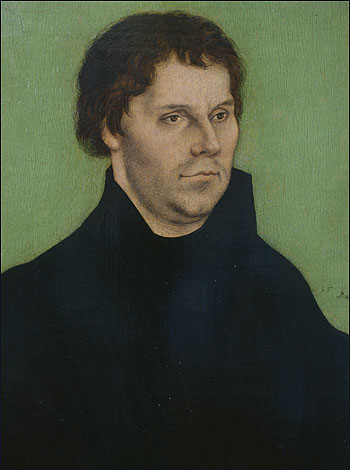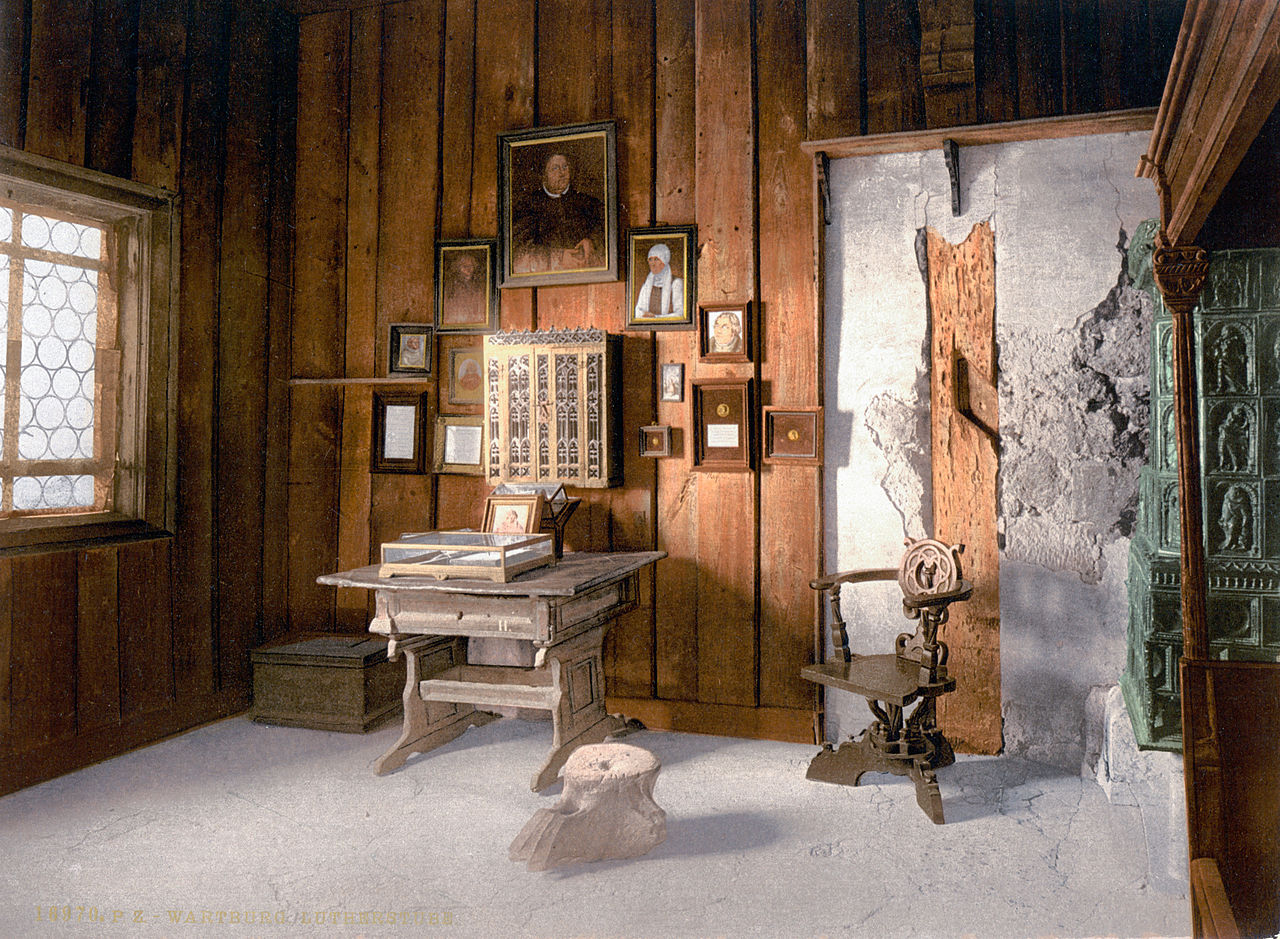On October 31, 1517, legend has it that the priest and scholar
Martin Luther approached the door of the Castle Church in
Wittenberg, Germany, and nailed a piece of paper to it that
contained the 95 revolutionary opinions that would begin the
Protestant Reformation.
In his theses, Luther condemned the excesses and corruption
of the Roman Catholic Church, especially the papal practice
that asked for payment—called “indulgences”—for the
forgiveness of sins.


Martin Luther (1483 – 1546)

The Wartburg room where Luther translated the New Testament into
German. An original first edition is kept in the case on the desk.

Place your comment